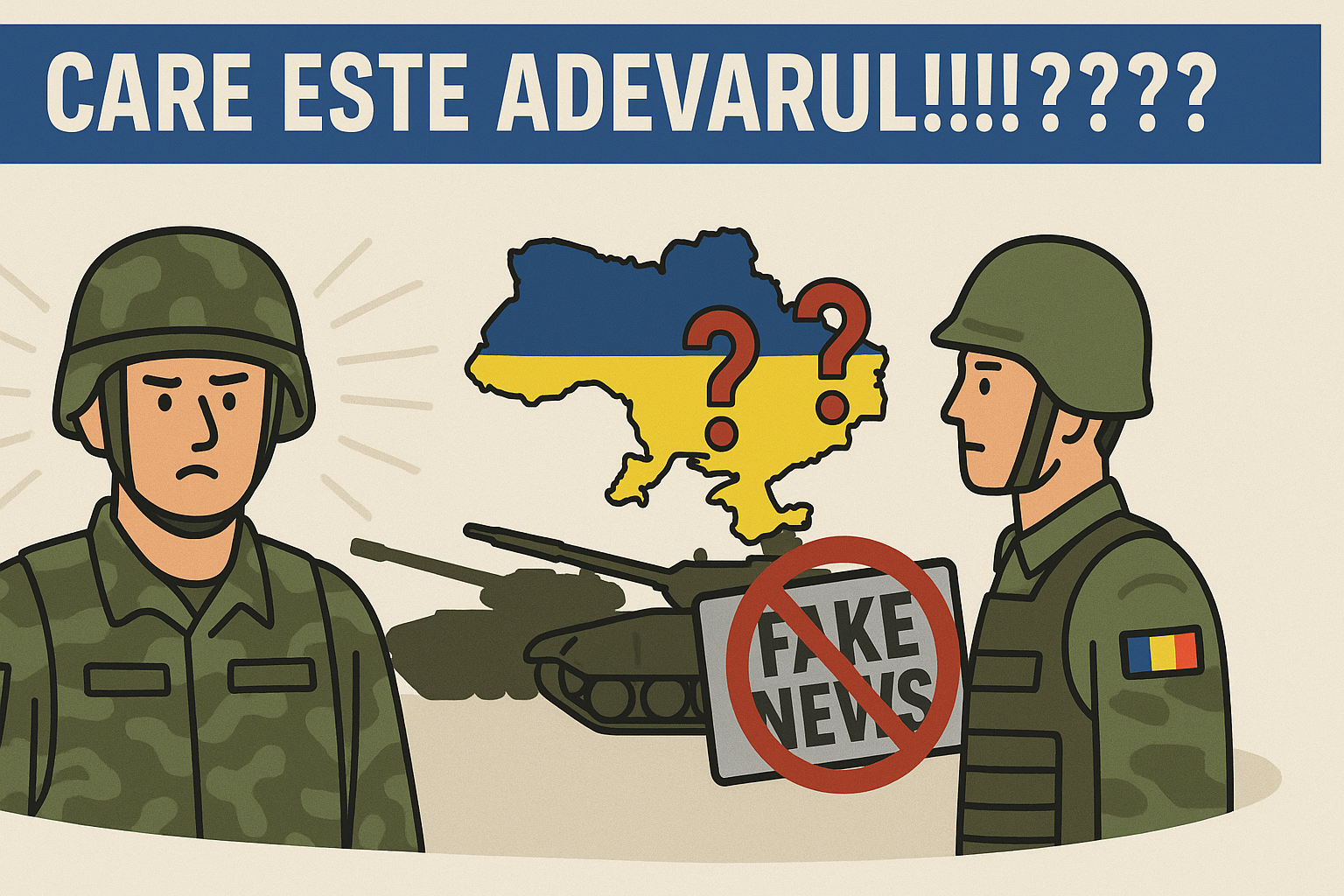PressHub is launching a press campaign aimed at dismantling one of the most widespread manipulations promoted by certain political parties and leaders that can be described as having extremist views.
The issue concerns the alleged large-scale presence of Romanian soldiers fighting in Ukraine—rumors suggesting that this would foreshadow a general mobilization in the near future, especially following Nicușor Dan’s victory in Romania’s presidential elections on May 18.
In reality, Romania has not sent troops to the war in Ukraine, nor does it intend to. Romanian assistance has been limited to outdated Soviet-era equipment, which was of little use to a NATO army. The only exception was a Patriot missile battery provided at the request of the United States.
In the first article of this campaign, set to be published this afternoon, PressHub reveals for the first time the real size of the so-called “battalion” of Romanians who fought in Ukraine. By consulting databases and social media posts, we show that no more than 90 Romanians, either born in or residing in Romania, have actually taken part in the fighting.
These individuals joined the war in Ukraine of their own accord and receive the same rights and benefits, including financial compensation, as any Ukrainian soldier.
Read also: Georgia at the crossroads of Russian slavery and European freedom
Truth Against Manipulation
The purpose of this PressHub investigative series is to present the facts about Romania’s support for Ukraine, based on verified data.
The false narrative about Romanian troops being sent to Ukraine has been consistently fueled in recent months by political leaders and parties with extremist or sovereigntist rhetoric.
The effect is clear: a growing number of Romanians have begun to withdraw their support for Ukraine’s war effort.
Fear of Conscription: The Electorate of Extremism
According to a survey conducted by INSCOP Research between May 26–30, nearly 42% of Romanians are worried that their country could be drawn into war. This percentage represents the sovereigntist electorate in Romania, a public increasingly swayed by the manipulative messaging of these parties.
“In the name of democracy, I publicly call on Ilie Bolojan not to involve Romania in sending troops or weapons to Ukraine. He has no mandate for this—we are waiting for a return to democracy,” wrote George Simion on his Facebook page in March.
Simion secured nearly 41% of the votes in the first round of Romania’s presidential election on May 4. Ultimately, in the second round, he was defeated by Nicușor Dan, the current president.
Read also: Oleksandra Romantsova: “We experience Bucha terror every day in the occupied territories”





